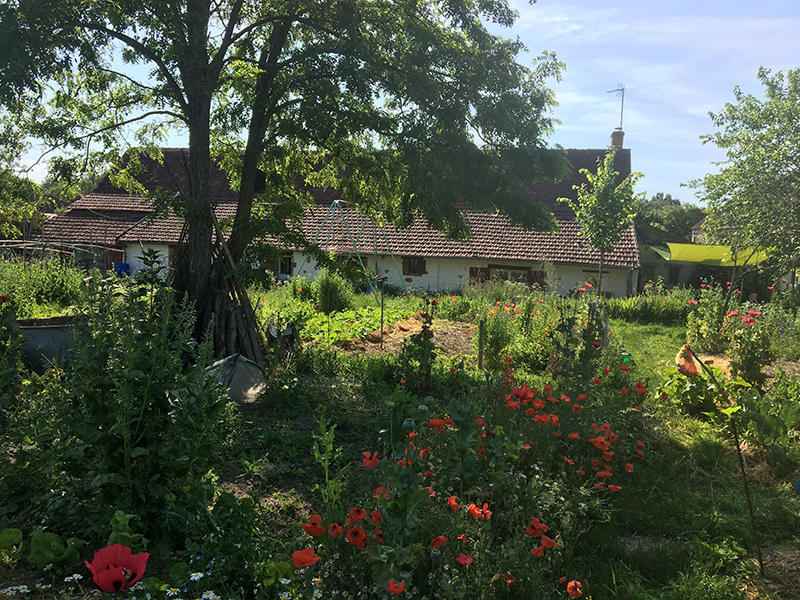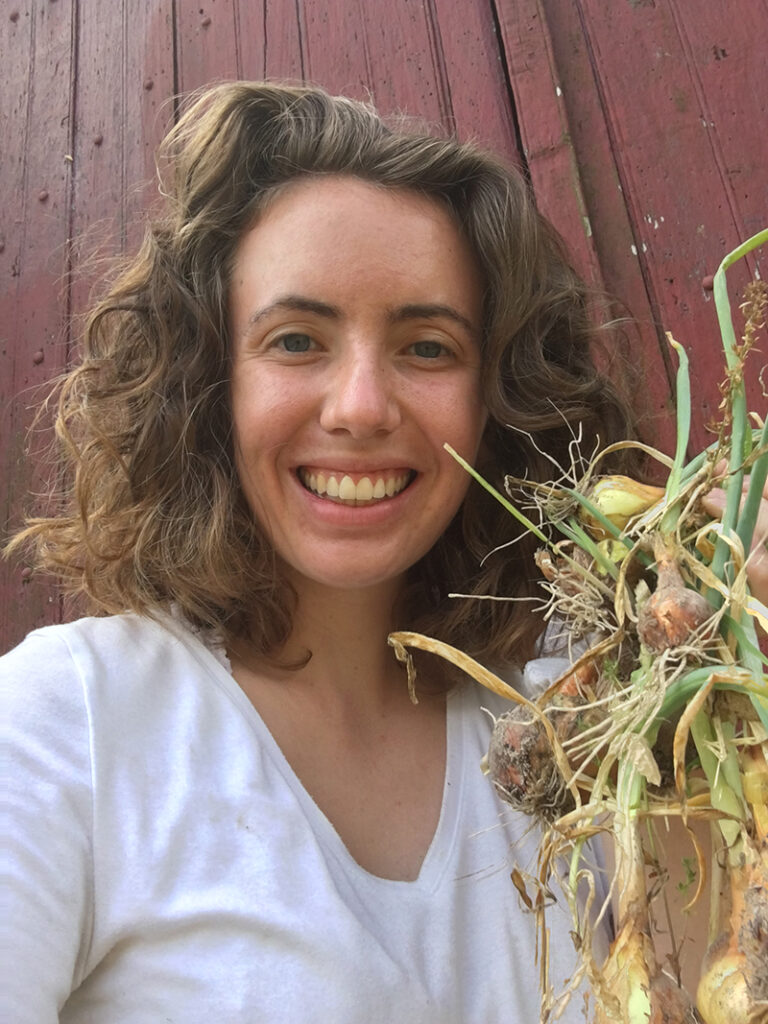
The Global Engagement Fellowship (GEF) supports UNC Chapel Hill students conducting international social justice-oriented summer projects. The following blog was written by GEF recipient Val Lucas, a rising junior majoring in Economics and Global Public Health.
Sitting in the backseat of a car driving Vignoux-sur-Barangeon, I see a field dotted with hay bundles, as though they are cows sent out to pasture. One of my hosts, Marie-Jo, tells me who owns the field. She knows almost everyone here, and almost everyone in the next town over too. Vignoux-sur-Barangeon is a tiny French town of about 2,000 with a chateau half of a mile from the centre-ville. I will be here for seven more weeks, staying with a retired couple, Marie-Jo and Jean-Claude Lechelon, and helping with community organizing efforts and working on their small organic farm.
So far, I’ve spent almost a week here getting to know my hosts and the geography better. I have a fairly consistent schedule; there is a rhythm to working with one’s hands. I get up around 7:30 and work on the farm until lunch, pulling weeds, spreading hay, harvesting fruits, and planting. We eat lunch together, then take a rest during the hottest part of the day. Maybe we nap, read, discuss politics. Then we eat dinner and finish up whatever needs to be done on the farm. Evening is the best time to water because less of the moisture evaporates.
 Marie-Jo and Jean-Claude know to water in the evening because they are very intentional and thoughtful about the way that they produce food for themselves. They make a clear effort to use less and create sustainable systems. In just a week, I’ve learned so many best-practices for sustainable farming. Instead of insecticides, we ring beds of vegetables with bug-repellent plants, like marigolds. Instead of using herbicide, we spread the ground with hay so that weeds don’t have a chance to grow. To water the plants, we dip their old-fashioned watering cans into one of several rain barrels. We compost plant waste to make new, high-quality soil and we feed food waste to their chickens. It’s practically a closed system.
Marie-Jo and Jean-Claude know to water in the evening because they are very intentional and thoughtful about the way that they produce food for themselves. They make a clear effort to use less and create sustainable systems. In just a week, I’ve learned so many best-practices for sustainable farming. Instead of insecticides, we ring beds of vegetables with bug-repellent plants, like marigolds. Instead of using herbicide, we spread the ground with hay so that weeds don’t have a chance to grow. To water the plants, we dip their old-fashioned watering cans into one of several rain barrels. We compost plant waste to make new, high-quality soil and we feed food waste to their chickens. It’s practically a closed system.
They have also examined other aspects of their lives. We use a solar oven to cook bread and vegetables. We eat the mushrooms they gather from the woods (hunting and gathering is the most ecologically sustainable method of gathering food). You wouldn’t know it if you walked into their house, but they don’t have air conditioning, something I was shocked to find out yesterday – a 103-degree day in Vignoux-sur-Barangeon. Their house is made with clay walls so thick that they insulate the entire day. When night falls and it cools down, we open the windows and aerate the place, letting the cool wind blow in. We eat mostly plants. Meat tends to be sort of an afterthought, only as a side or part of another dish. They’ve bought solar panels. I’m grateful to my hosts for showing me how they make their life more sustainably and prompting me to examine my own.
However, in thinking of my own and my host’s lifestyle, I want to dig into how we frame environmental responsibility. I want to examine the context of our consumption. They still use a good bit of additional electricity, and have bought plenty to furnish their home. They drive two cars, and aren’t shy about driving. Overall, they probably consume a lot more than the average person in a developing country. I don’t mean to critique them for these behaviors, because they are perfectly reasonable and almost necessary in rural France. It just shows that it’s extremely difficult to consume ethically, especially in the developed world. Our lives run on excessive consumption. Some of the developed world, and a lot of the part that I inhabit, is set up so that we can ignore the consequences of our actions when we make purchases and consume. Ultimately, our wealth is the ultimate determinant of what we consume. And this is in part intentional, because consumption powers the economies of the United States and France.
Reducing our consumption is an important choice for us to make. Not everyone can or should move out to an organic farm, but I’m proud to be a part of this one, if only for a few months. However, reducing consumption is only one piece of the puzzle. We must also work to dismantle the systems that have created this inequality. I admire these people for the hard work their do and their genuine stewardship of the earth. Yesterday, when the high was 103, Marie-Jo tenderly got out an umbrella and stuck it in the ground over the green beans we had just planted. But there is more to do than minimize resource consumption. We must also organize and act selflessly in a global context, which they also do. But that’s for another post.
